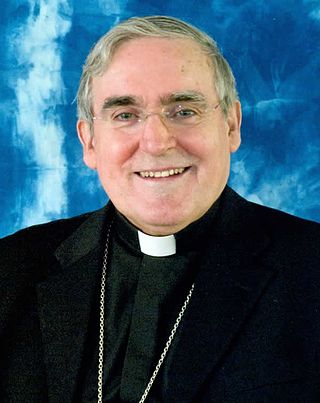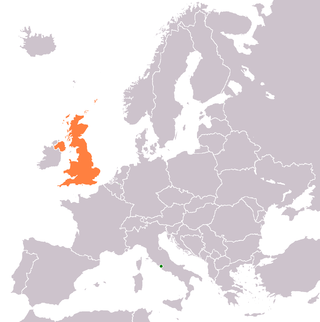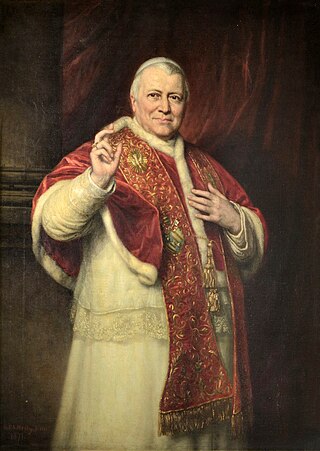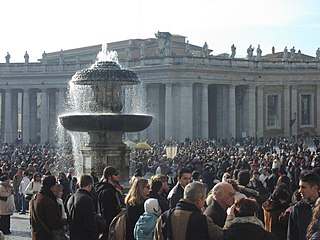
The pope, also known as the supreme pontiff, Roman pontiff or sovereign pontiff, is the bishop of Rome, visible head of the worldwide Catholic Church, and has also served as the head of state or sovereign of the Papal States and later the Vatican City State since the eighth century. From a Catholic viewpoint, the primacy of the bishop of Rome is largely derived from his role as the apostolic successor to Saint Peter, to whom primacy was conferred by Jesus, who gave Peter the Keys of Heaven and the powers of "binding and loosing", naming him as the "rock" upon which the Church would be built. The current pope is Francis, who was elected on 13 March 2013.

Pope Benedict XVI was the head of the Catholic Church and sovereign of the Vatican City State from 19 April 2005 until his resignation on 28 February 2013. Benedict's election as pope occurred in the 2005 papal conclave that followed the death of Pope John Paul II. Benedict chose to be known as "Pope emeritus" upon his resignation, and he retained this title until his death in 2022.
Papabile is an unofficial Italian term first coined by Vaticanologists and now used internationally in many languages to describe a Catholic man, in practice always a cardinal, who is thought a likely or possible candidate to be elected pope.

Angelo Raffaele Sodano, GCC was an Italian prelate of the Catholic Church and, from 1991 onward, a cardinal. He was the Dean of the College of Cardinals from 2005 to 2019 and Cardinal Secretary of State from 1991 to 2006; Sodano was the first person since 1828 to serve simultaneously as Dean and Secretary of State.

Pope Francis is the Pope and head of the Catholic Church, the bishop of Rome and sovereign of the Vatican City State. He is the first pope to be a member of the Society of Jesus (Jesuits), the first one from the Americas, the first one from the Southern Hemisphere, and the first one born or raised outside Europe since the 8th-century papacy of the Syrian Pope Gregory III.

Georg Gänswein is a German prelate of the Catholic Church who served as Prefect of the Papal Household from 2012 to 2023 and was the Personal Secretary of Pope Benedict XVI. He was a Professor of Canon Law at the Pontifical University of the Holy Cross for about a decade and has been an archbishop since 2012. He is currently Honorary Canon of Freiburg Cathedral.

Austen Ivereigh is a UK-based Catholic journalist, author, commentator and biographer of Pope Francis.

Lluís Martínez i Sistach is a Spanish prelate of the Catholic Church. He is Archbishop emeritus of Barcelona, having served as archbishop there from 2004 to 2015. He has been a cardinal since 2007.
The tradition of the Catholic Church claims it began with Jesus Christ and his teachings; the Catholic tradition considers that the Church is a continuation of the early Christian community established by the Disciples of Jesus. The Church considers its bishops to be the successors to Jesus's apostles and the Church's leader, the Bishop of Rome, to be the sole successor to St Peter who ministered in Rome in the first century AD after his appointment by Jesus as head of the Church. By the end of the 2nd century, bishops began congregating in regional synods to resolve doctrinal and administrative issues. Historian Eamon Duffy claims that by the 3rd century, the church at Rome might even function as a court of appeal on doctrinal issues.

Holy See–United Kingdom relations are foreign relations between the Holy See and the United Kingdom.

Papal infallibility is a dogma of the Catholic Church which states that, in virtue of the promise of Jesus to Peter, the Pope when he speaks ex cathedra is preserved from the possibility of error on doctrine "initially given to the apostolic Church and handed down in Scripture and tradition". It does not mean that the pope cannot sin or otherwise err in some capacity, though he is prevented by the assistance of the Holy Spirit from issuing heretical teaching even in his non-infallible Magisterium, as a corollary of indefectibility. This doctrine, defined dogmatically at the First Vatican Council of 1869–1870 in the document Pastor aeternus, is claimed to have existed in medieval theology and to have been the majority opinion at the time of the Counter-Reformation.
The relations between Pope Benedict XVI and Judaism remained fairly good, although concerns were raised by Jewish leaders over the political impact of Traditionalists in the Church during the papacy of Benedict.

The state visit of Pope Benedict XVI to the United Kingdom was held from 16 to 19 September 2010 and was the first visit by a Pope to Britain after Pope John Paul II made a pastoral, rather than state, visit in 1982. The visit included the beatification of Cardinal Newman as a "pastoral highlight".

Ricardo Ezzati Andrello is an Italian prelate of the Catholic Church who has lived and worked in Chile since the age of 17. He was Archbishop of Santiago from December 2010 to March 2019 and has been a cardinal since February 2014. He previously served as Archbishop of Concepción. He headed the Episcopal Conference of Chile from 2010 to 2016.

Catholic laity are the ordinary members of the Catholic Church who are neither clergy nor recipients of Holy Orders or vowed to life in a religious order or congregation. Their mission, according to the Second Vatican Council, is to "sanctify the world".

Giovanni Angelo Becciu is an Italian prelate of the Roman Catholic Church and convicted felon. Pope Francis made him a cardinal on 28 June 2018. On 24 September 2020, he resigned the rights associated with the cardinalate.

Charles Jude Scicluna is a Canadian-Maltese prelate of the Catholic Church who has served as Archbishop of Malta since 2015. Both as a curial official and since becoming a bishop, he has conducted investigations into sexual abuse by clergy on behalf of the Holy See and led a board that reviews such cases. He has been called "the Vatican's most respected sex crimes expert".

The Saint Gallen Group, also called the Saint Gallen Mafia, was an informal group of high ranking like-minded liberal/reformist clerics in the Catholic Church, described by the Bishop of Saint Gallen, Ivo Fürer, who hosted the discussions, as a Freundeskreis – who met annually in or near St. Gallen, Switzerland, in January, to freely exchange ideas about issues in the church.
Juan de la Cruz Barros Madrid is a Chilean prelate of the Catholic Church. He was Bishop of Osorno from 2015 to 2018. He was Auxiliary Bishop of Valparaíso from 1995 to 2000, Bishop of Iquique from 2000 to 2004, and Military Ordinary of Chile from 2004 to 2015.
The sexual abuse of minors by clergy of the Catholic Church in Chile and the failure of Church officials to respond and take responsibility attracted worldwide attention as a critical failure of Pope Francis and the Church as a whole to address the sexual abuse of minors by priests. Among a number of cases, that of Father Fernando Karadima, which became public in 2010, raised questions about the responsibility and complicity of several Chilean bishops, including some of the country's highest-ranking Catholic prelates.














